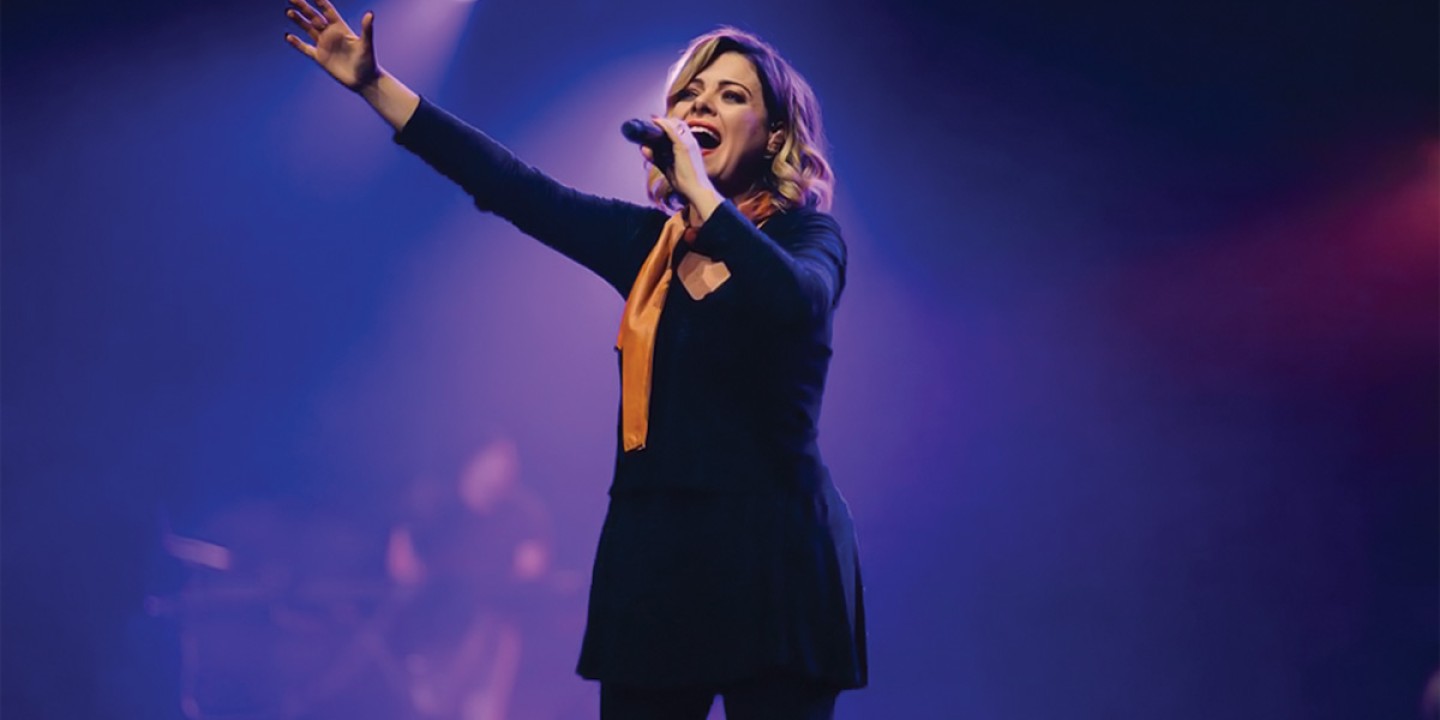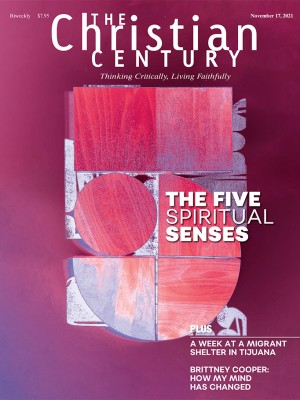Brazil’s explosion of música gospel
As Protestants gain numbers, a sizable world of Christian music in many genres has emerged.

Since the 1970s, Brazil’s Protestant population has grown rapidly to more than 60 million believers today. Most of them fall into the general category of evangelicals and Pentecostals, with the worship styles we would expect from those traditions. That story is well known to North Americans.
Less familiar is the sizable musical world that has emerged from this expansion. Brazil today is the center of a large and thriving industry in música gospel—Christian music of various genres. Those millions of church members constitute a domestic market second only to that of the United States. Christian music, broadly defined, accounts for around 20 percent of the nation’s music market, which supports some 5,000 Christian singers and bands.
Read our latest issue or browse back issues.
In an echo of the Black experience in the United States, many of the most successful acts began by serving individual churches before expanding their ambitions into the public realm. Among the most famous artists are Diante do Trono (Before the Throne), led by Ana Paula Valadão. The group emerged in the 1990s as the praise band of Lagoinha Church, a vast charismatic Baptist megachurch based in Belo Horizonte. In 2003, Diante do Trono attracted an audience of 2 million to an event in São Paulo, and their albums have sold 15 million copies worldwide. Valadão is an influential celebrity far beyond the world of Christian music. The band in turn has launched successful spinoff acts, such as former member Marine Friesen, who went solo in 2015.
Brazil’s Christian music scene is dominated by superstar women such as Valadão, Friesen, Aline Barros, Bruna Karla, and Gabriela Rocha. This reflects the powerful representation of women in evangelical congregations generally.
The country’s singers differ widely in their approaches, and many lean toward distinctly North American pop styles. (Rocha began her career with a version of Leonard Cohen’s “Hallelujah.”) But there is real diversity, and a Brazilian genre, influenced by the African diaspora, that takes the English name “Black music gospel” has become a booming subset of Christian popular culture, particularly in São Paulo. One beloved act is Preto no Branco (Black in White), with its strong commitment to Black music.
Across the spectrum of genres, some of the most successful acts are ministers who have established flourishing careers as public performers and recording artists. Fernandinho is a Baptist pastor who leads a ministry called Faz Chover (Make It Rain), and over two decades this evangelistic rainmaking has involved a steady outpouring of very popular albums. Another star is Fernanda Brum, who serves as a worship pastor in her Baptist church in Rio de Janeiro. The veteran singer Cassiane, who pioneered much of the recent music boom back in the 1980s, likewise serves as a pastor in her church. Valadão now copastors a satellite congregation of Lagoinha in Boca Raton, Florida.
Música gospel is the focus of major public gatherings, such as the Festival Promessas, which serves as a showcase for rising acts and has attracted audiences of 100,000. Music features centrally in the many parades and rallies that are such a centerpiece of Brazil’s evangelical world, and which regularly turn out believers in the hundreds of thousands (or at least they did before the pandemic). Churches have found music a highly attractive component of their outreach and evangelism, and that in turn has inspired Catholic churches to develop their own music festivals as counter-attractions, to prevent yet more defections to the booming evangelical congregations.
So inescapable is the Christian music scene, and so profitable, that many Christian songs are now released on secular labels, and they become crossover hits. Over the past decade, evangelical-oriented music events like Promessas have also been picked up by the powerful broadcaster Rede Globo, which is traditionally Catholic.
Música gospel acts often present their songs in quite spectacular music videos, with lavish settings. On a personal note, one of the most moving for me was the straightforward rendering of Psalm 91 by Diante do Trono, in a courtyard setting that recalls ancient Jerusalem. Psalm 91, incidentally, has a special appeal in the country’s evangelical world, and it has been the subject of multiple settings and recordings, including in rap and heavy metal. The psalm is almost a musical world in its own right, and there is a 91 for every taste. Through the wonders of YouTube, interested North Americans can explore these different artists freely.
No account of Christian popular culture in the modern world can ignore this Brazilian musical explosion.
A version of this article appears in the print edition under the title “Brazil’s diverse música gospel.”






